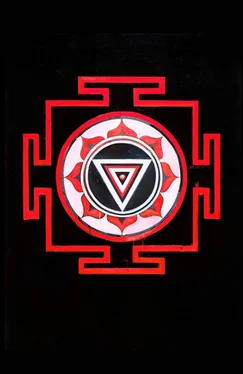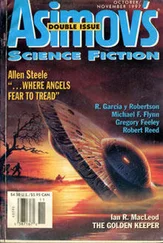The long sword was in a wide silver scabbard, chiselled to show a flight of hawks in relief. The apical portion of the scabbard showed an inscription from the Koran. The hilt was made of lapis, inlaid with turquoise to cover the fixing rivets. A hand guard of beaten silver swept in a graceful curve from the pommel to the cross guard.
‘It’s a mistake,’ I repeated, staring at the heirloom weapon. ‘It should be yours. It must be yours.’
The boy smiled, grateful and wistful in equal measure.
‘You are quite right, it should be mine,’ he said. ‘But the papers, written in Khaderbhai’s own hand, are very specific. The sword is yours, Lin. And don’t think to refuse it. I know your heart. If you try to give it back to me, I will be offended.’
‘There’s another consideration,’ I said, still staring at the sword. ‘You know that I escaped from prison in my country. I could be arrested and sent back there at any time. If that happens, the sword could be lost.’
‘You will never have trouble with the police in Bombay,’ Tariq insisted. ‘You are with us. No harm can come to you here. And if you leave the city for some long time, you can give the sword to Nazeer, who will protect it until you return.’
He nodded to Nazeer, who leaned in closer, urging me to take the weapon from his hands. I looked into his eyes. Nazeer’s mouth tightened in a willow-droop smile.
‘Take the sword,’ he said in Urdu. ‘And draw the sword.’
The sword was lighter than I’d expected it to be. I let it rest on my knees for a time.
In that silent minute in the neglected mansion I hesitated, thinking that if I drew the sword from its scabbard, memories would bleed out from the sheath of forgetfulness, where some of the time, enough of the time, they were hidden. But tradition demanded that I draw the sword, as a sign of accepting it.
I drew the blade into the light and stood, holding the naked sword at my side, the point of the blade only a finger’s breadth from the marble floor. And it was true. I felt it: the power in a thing to swell a tide of memory.
I sheathed the sword again, and faced Tariq. The boy indicated the chair beside him with a nod of his head. I sat once more, the sword balanced across my knees.
‘The text on the sword,’ I said. ‘I can’t read the Arabic.’
‘ Inna Lillahi wa inna -’ Tariq began in the poetry of the Koran.
‘- ilayhi raji’un ,’ I finished for him.
I knew the quote. We belong to God, and unto God do we return. Every Muslim gangster said it on the way into battle. We all said it, even if we weren’t Muslim, just in case.
The fact that I couldn’t even read the Arabic inscription on the ancestor-sword Khaderbhai had left to me was a bitter pinch on Tariq’s face. I sympathised with him: I agreed with him, in fact, that I didn’t deserve the sword, and couldn’t know the blood significance that the heirloom had for Tariq.
‘There was a letter among those papers we found in the Holy Book,’ he said, controlling every breath and word. ‘It was a letter to you.’
I felt the cobra rising within me. A letter. I didn’t want it. I don’t like letters. Any dark past is a vampire, feeding on the blood of the living moment, and letters are the bats.
‘We began to read it,’ Tariq said, ‘not knowing that it was addressed to you. It was not until halfway through it that we realised it was his last letter to you. We stopped reading immediately. We did not finish the letter. We do not know how it ends. But we know that it begins with Sri Lanka.’
Sometimes the river of life takes you to the rocks. The letter, the sword, the decisions made at the Council meeting, Don’t mistake your usefulness for your value , the Cycle Killers, guns from Goa, Sri Lanka: streams of coincidence and consequence. And when you see the rocks coming, you’ve got two choices: stay in the boat, or jump.
Nazeer handed Tariq the silver envelope. Tariq tapped it against his open palm.
‘My uncle’s gifts,’ he said, even more softly, ‘were always given with conditions, and never accepted without -’
‘Consequences,’ I finished for him.
‘I was going to say submission . This house was a gift in Khaderbhai’s will, but it was given to me on the condition that I never leave it, even for a minute, until I reach the age of eighteen years.’
I didn’t hide my shock. I wasn’t sensitive to what he was going through, and becoming.
‘ What? ’
‘It is not so bad,’ Tariq said, setting his jaw against my indignation. ‘All of my tutors come here, to me. I am learning everything. English, science, Islamic studies, economics, and the fighting arts. And Nazeer is always with me, and all of the household servants.’
‘But you’re fourteen years old, Tariq. You’ve got four more years of this? Do you ever meet any other kids?’
‘Men in my family fight and lead at fifteen years old,’ Tariq declared, glaring at me. ‘And even at this age, I am already living my destiny. Can you say the same of your life?’
Young determination is the strongest energy we ever have, alone. I didn’t want to criticise his commitment: I just wanted to be sure that he was aware of alternatives.
‘Tariq,’ I sighed. ‘I don’t have the slightest idea what you’re talking about.’
‘I will not simply follow in the footsteps of my uncle,’ he said slowly, as if I was the child, ‘I will become Khaderbhai, one day, and I will lead all of these men who were here today. Including you, Lin. I will be your leader. If you are still with us.’
I looked once more at Nazeer, who gazed back at me, a softly burning diamond of pride in his eyes. I began to walk away.
‘The letter!’ Tariq said quickly.
Suddenly angry, I spun round to face him again. I was about to speak, but Tariq raised the letter in his hand.
‘It begins with a mention of Sri Lanka,’ Tariq said, offering me the silver envelope. ‘I know that it was his wish. You gave your word to go there, isn’t it so?’
‘I did,’ I said, taking the letter from his slender fingers.
‘Our agents in Trincomalee tell us that the time will soon be right for you to fulfil your promise.’
‘When?’ I asked, holding the twin legacies, letter and sword.
‘Soon,’ Tariq said, glancing at Nazeer. ‘Abdullah will let you know. But be ready, at any time. It will be soon.’
The interview was over. A cold courtesy kept the boy in his seat, but I knew that he was anxious to leave: even more anxious, perhaps, for me to leave him.
I walked toward the door leading to the courtyard. Nazeer accompanied me. At the door, I looked back to see the tall boy still sitting in the emperor chair, his face supported by his hand. His thumb extended downwards against his dimpled cheek, and the fingers fanned out across his forehead. It was exactly the gesture I’d seen when Khaderbhai was lost in thought.
At the street door of the mansion, Nazeer retrieved a calico pouch, complete with a shoulder strap. The sword fitted neatly inside, concealed by the cloth, and could be worn across my back as I rode my bike.
Slipping the pouch over my shoulder, Nazeer adjusted the sword fussily until it hung to just the right aesthetic angle. He hugged me quickly, furtively and fiercely, crunching my ribs in the hoop of his arms.
He walked away without a word or a backward glance. His bowed legs waddled at his fastest pace, hurrying him back to the boy, the young man who was his master and his only love: Khaderbhai, come back to life, so that Nazeer might serve him again.
Watching him leave, I remembered another time when the mansion had been filled with plants and the music of falling water, and tame pigeons had followed Nazeer’s every step through the huge house. They loved him, those birds.
Читать дальше












